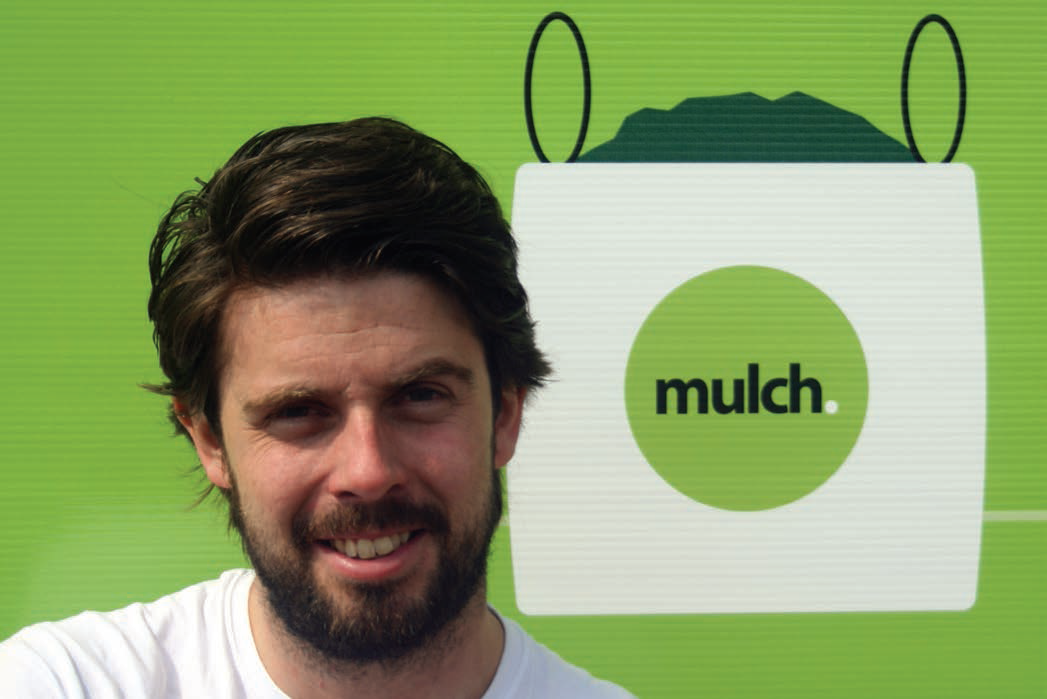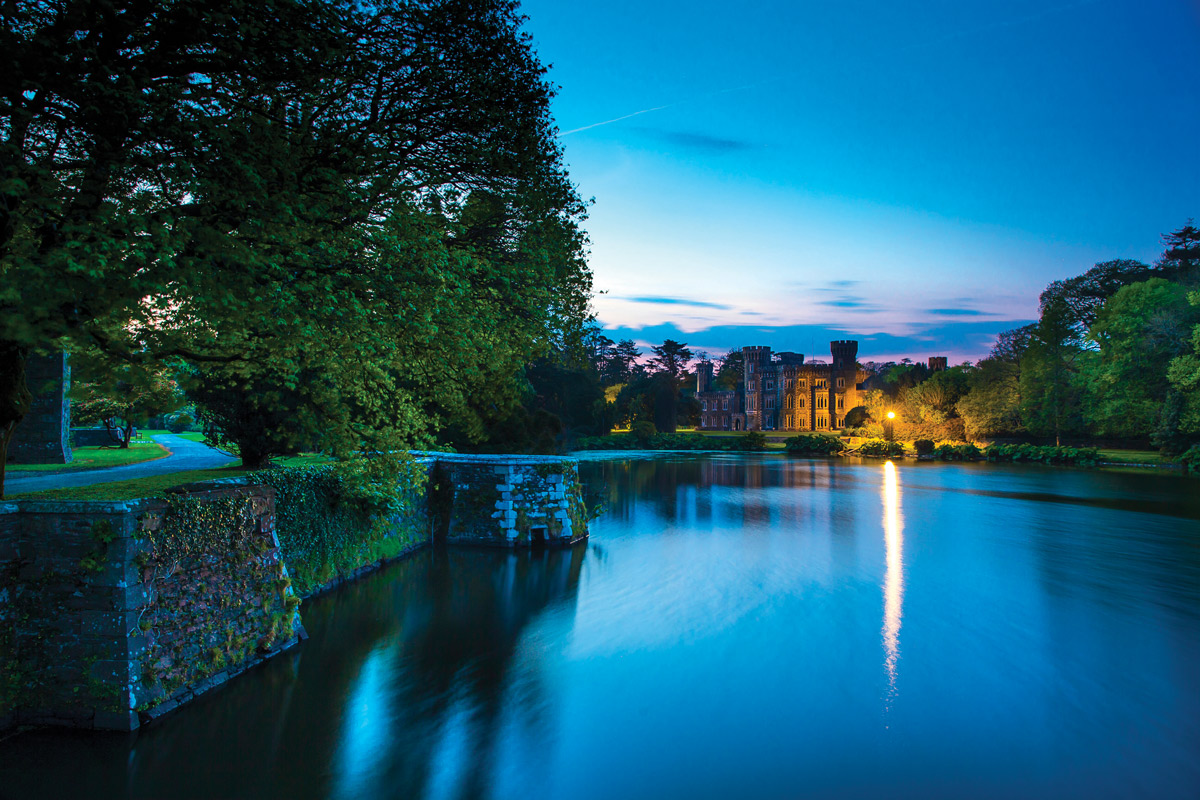Barry Lupton interviews John McGuinness
The thing about all great ideas is that once realised they seem obvious. We’ve all experienced that feeling of, why didn’t I think of that? But having great ideas and realising them are very different things. The former often happens in a flash, a light bulb moment, the latter requires commitment, perseverance, self-belief, hard work and of course, hard cash.One man who had what it took to realise his idea is John McGuiness. A native of North County Dublin, John came to horticulture via the more traditional route of family and farm experience rather than the more contemporary route of college qualification. In fact, despite working successfully in horticulture for more than a decade – principally in landscape construction – John has no formal horticultural qualification. While always keeping a hand in the business, he focused instead on his passion for problem-solving and attained a degree in engineering from DCU. A decision which underpinned his approach to landscape construction and ultimately his decision to start his own business.Mulch was founded in 2011 by John and his then business partner Aengus Benson to address problems he identified in the Irish landscape sector: green waste facilities and peat-free products. Four years on, and John now operates Ireland’s only drive-through green waste facility and supplies a range and environmentally friendly products to an expanding domestic and commercial clientele. On a recent visit to the Mulch facility, I had the opportunity to talk with John about how he realised his ideas and what plans he has for the future. ✽ |
Barry: What inspired you to create a drive-through green waste facility?
John: I guess I really identified the need for the facility from working at landscaping in the area and having no suitable place within a reasonable distance to dispose of the green waste properly.
Barry: What first steps did you take when you decided to focus on the development of Mulch?
John: A lot of things go through your head when you have the light bulb moment. How much will it cost, where will I build it, how should I build it, etc. So the first step was to do a serious business plan. This was an essential task and really made me question a lot of different areas that I couldn’t have imagined.
Barry: What were the principle challenges you faced in the first few months and how did you overcome them?
John: I suppose once you’ve overcome the first hurdle of convincing yourself that it’s a good idea then the next job is to convince everyone else. The marketing and advertising were, and still are, the main challenge.
Barry: A lot of people shy away from developing ideas because of financial worries. In fact, I would say the sector is restricted because too few potential entrepreneurs are willing to take a chance. How did you overcome your financial barriers?
John: The co-founder Aengus and I self-funded the business to get things motoring. We both had cash from our previous ventures. It isn’t very easy to get a bank loan to start a business and I don’t think it’s ever going to be. The financial barrier is probably the best personal acid test of the entrepreneur as its usually your own hard earned money you are about to invest and gamble into your own idea so it really makes you think. Start small and if your idea is a good one it will grow, and hopefully, the right people will notice you and advise and help you along the way.
Barry: The landscape sector is sometimes viewed as a bit rough and ready, with little focus on staff training and customer care. I was struck by the friendliness of your team on arrival. Is customer care training a specific focus and if so, how is it articulated?
John: Yes, and it’s a really strong point with me. I designed Mulch using the eyes of the customer, giving them what they want in the friendliest and nicest environment I could imagine. Making the depot look well is going to be your first impression but how the staff treat you and make you feel will be your lasting impression. Because of this I only employ people who have very natural and strong people skills, everything else comes second.
Barry: When most people think of green waste facilities they think of county council depots or landscape yards. What factors led you to be based in the heart of an industrial estate?
John: I guess they say location is everything and they’re right. People have a subconscious limit as to how much effort they will go to engage with any business. For both our commercial and domestic customers we know time is precious so we wanted to be as close to as many people as possible to encourage them to use us as frequently as possible, so when we were selecting the site we found that Malahide Road Industrial Park served the entire Northside of Dublin extremely well.
Barry: It’s one thing to provide a facility for green waste, it’s a whole other thing to develop a range of products. How did you go about product development?
John: The products start and stop with the gardeners’ most basic needs: good quality soil, compost and bark in a variety of mediums and in any quantity imaginable. There were no real standards or consistencies for these basic products so I wanted to sort that out. And I did.
Barry: Marketing has never been a strong focus of the wider horticulture sector but you appear to be making a significant investment in brand development and awareness. Tell me about your views on marketing and strategy for Mulch?
John: I don’t think branding really exists in horticulture. Most business owners don’t get it, and probably never will. Mulch was a brand from the day it was born. It was part of our DNA, whereas most other businesses just use a combination of their initials, their surnames or the places they are from. And they are not really thinking about how people will react when they hear the name first. Branding isn’t essential but if you intend to grow your business it’s very difficult to progress without it.
Barry: Part of your brand is centred on the supply of peat-free/environmentally friendly garden products. I have always felt Irish consumers pay lip service to environmental concerns, and it is ultimately price which governs buying decisions. What has your experience been?
John: I would totally agree with that but because of the eco concise way that Mulch is set up, people pretty much expect our products to be environmentally friendly so that makes that whole push an easier sell.
Barry: We are starting to see more coverage of the impacts of invasive species and I note some information on knotweed in your reception. What is your role in this important area and how do you ensure you’re not unwittingly spreading species through the green waste collection?
John: Well using the knotweed as our current example, when we came across the issue we found the best thing to do was inform all our commercial customers about it, most of which hadn’t heard about it, and explain to them the ways in which we would correctly dispose of it should it land in our depot or they come across it. Education is really vital in this area.
Barry: You worked in landscape construction for almost a decade, what were the most enjoyable aspects of the work?
John: I loved the fast turn around time in landscaping. Quite often, in just a couple of weeks, you had the opportunity to transform people’s gardens and essentially their lifestyle and wellbeing by designing and constructing something amazing. That always gave me great pleasure.
Barry: Many contractors complain that there is simply no money in construction anymore. Do you agree, and if so, why do you think it’s so difficult to make a living from it?
John: Yes I do agree with this. I think as a sector it is very under-appreciated and under-valued. Compared to the construction trade, for example, wages are definitely lower despite that for decades, there have been very good reasons to support their claim for higher earnings. Also because of the weather, it makes earning a living during the winter months even more difficult and almost everyone has to find alternate income sources to make ends meet during these times.
Barry: The same contractors might also be heard talking about how punishing their workday is. What does a typical day for you involve and how does it compare?
John: My day is hectic and sporadic, to say the least. Like all small business owners there is a loose plan of what you want to get done, then the day kicks off and it all goes out the window. I do enjoy the diversity of how one minute I’m driving a JCB, then in the office, then out driving a truck and then back in the warehouse sweeping the floor.
Barry: How successful has your Coolock depot been when compared to initial projections?
John: It’s fairly on track for what we hoped it would do. Let’s see if it continues to grow and stay successful.
Barry: You took a brave step moving away from your landscape business. What advice would you give to other contractors considering the development of a new business?
John: I think everyone knows when their time is done at a certain job or company and it’s time to move on. A little switch goes off in your head and you just know. There’s nothing worse than doing something you don’t enjoy.
Barry: How do you see Mulch developing over the next decade?
John: I guess I always see Mulch evolving into something better, that’s what keeps me motivated. I don’t know what the limit is but if it works really well in one area I have to wonder why it wouldn’t work elsewhere.
Barry: Any final thoughts?
John: People think certain industries are exempt from evolution and progress. They’re wrong, nothing stays still and if anyone thinks like that they will be overtaken before they know it. Before Mulch existed no one thought they needed such a place, now they wouldn’t know what to do without it. ✽





